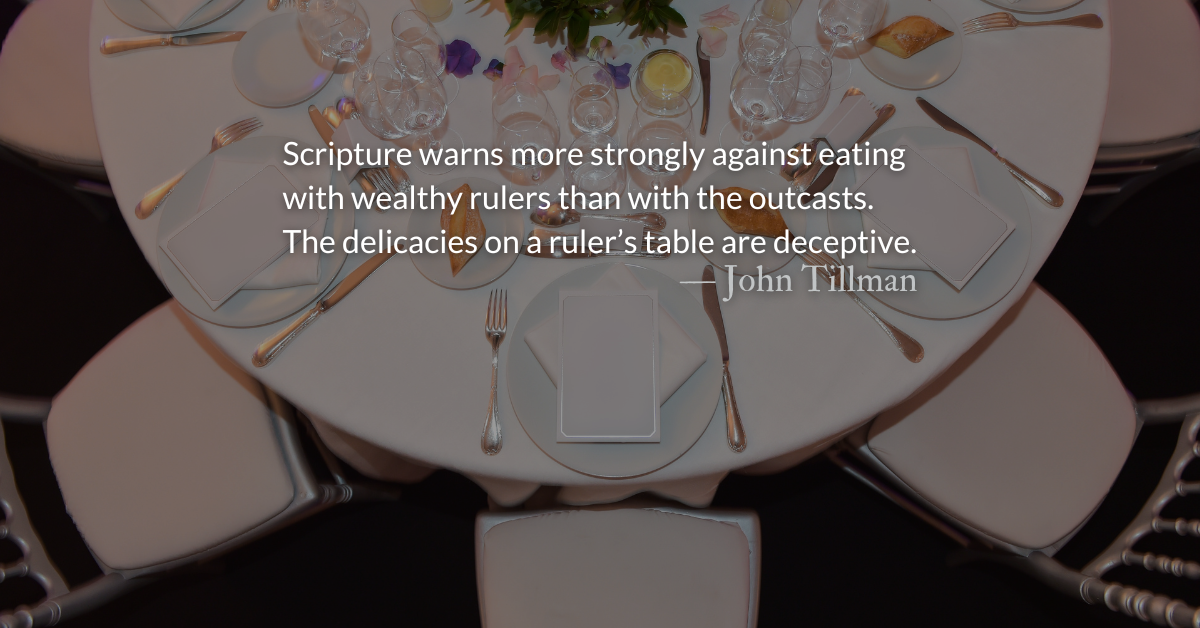Scripture Focus: Psalm 27.1-3
1 As the deer pants for streams of water,
so my soul pants for you, my God.
2 My soul thirsts for God, for the living God.
When can I go and meet with God?
3 My tears have been my food
day and night,
while people say to me all day long,
“Where is your God?”
Reflection: Streams of Scripture
By John Tillman
In arid regions, there are rivers and streams that only exist at certain times. These wadis are dry, dead depressions in the landscape for much of the year. Some are little more than ditches. Some are like miniature canyons.
These dusty gulches can go from empty to overflowing in minutes due to rain nearby or rain miles and miles away on higher plains or mountains. When snowmelt or heavy rains rush down from the peaks and the high plains, wadis in the desert flow with water and spring to life.
Wadis can become a source of water but dry up as quickly as they fill up. Animals accustomed to finding water in these places can be in distress when they come to a wadi and find it dry.
The writer of Psalm 27 reflects on the distressed sound of deer in the desert, crying out in thirst. The animal cries out in desperate need searching for signs of water. The psalmist cries out in desperate need searching for God.
Jesus may have had this psalm in mind as he prayed in Gethsemane. Jesus’ words, “overwhelmed with sorrow” (Matthew 26.38) echo the psalmist’s phrase, “Why my soul are you downcast?” In the middle of a garden Jesus experienced a spiritual desert.
Our lives, especially our spiritual lives, can seem like arid regions. One day, the wadi flows and we feel connected to God. Another, it is dry and we long for greater connection. But we can access water from a higher plane, a greater source, that makes streams in the desert.
Psalm 1 says when we delight in the scriptures, they become like water that fills a tree with life and makes it productive, healthy, and full of good fruit. Jesus, in one of his darkest moments, found scripture within his downcast soul. When you know the scriptures inside and out, they get inside you and come out of you. We need scripture hidden in our hearts for our soul’s darkest moments.
If Jesus experienced dry times, we will, too. During dry days, we can search our souls for streams of scripture. Like animals in the wilderness, calling out in need, we can call on the Holy Spirit to fill our dry depressions. The dusty canyons of our souls can be filled with the living water that Jesus gives, becoming a fountain within us, overflowing with life.
Divine Hours Prayer: The Small Verse
Let me seek the Lord while he may still be found. I will call upon his name; while he is near.
– From The Divine Hours: Prayers for Summertime by Phyllis Tickle.
Today’s Readings
Proverbs 27 (Listen 2:43)
Psalms 42-43 (Listen 2:31)
This Weekend’s Readings
Proverbs 28 (Listen 3:07), Psalm 44 (Listen 2:44)
Proverbs 29 (Listen 2:44), Psalm 45 (Listen 2:17)
Read more about Sluggish Grief
Emotional experience is like traveling across mountains…the bright ascent to the peak…But…we must descend into the valley, the dark woods.
Read more about Be With Me
The weight of our sadness reflects the hope of a beautiful life that has been tragically altered.
But we are not alone. God is near to the brokenhearted…






